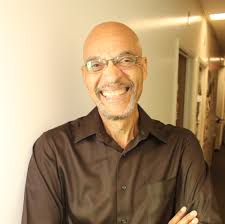Bill Clinton barely got the words out of his mouth lambasting the Bernie Sanders camp for what he bluntly said were attacks on Hillary that were to sexist and to "profane" to repeat when a Sanders campaign official shot back that the attack was "disappointing." Sanders for his part took the high road approach, acknowledged that he'd heard some nasty things from his supporters about Clinton, and demanded that they knock it off.
http://quadrangleonline.com/2016/02/09/bill-clinton-accuses-sanders-of-sexist-attacks/
The brutal reality is that no matter how much Clinton and Sanders call for civility when it comes to what's said about Hillary, it won't happen. Clinton is not simply another marked man presidential candidate. She's exactly what she was in 2008 a marked woman presidential candidate. One media investigative team even compiled hundreds of the most outrageous digs about Clinton from the 2008 campaign from assorted commentators, male and female. Not much has changed this go round.
The vulgarities are heaped on top of the hard headed belief of many men and women that a woman just doesn't have the right stuff to be the nation's commander in chief. In one poll nearly 70 percent of men and women were lukewarm at best in answering the question whether they thought women were "respected" in politics. One out of four respondents flatly said that there would never be a woman president, and the most optimistic thought it would take at least another five years before that happened.
Even this seemed to be a
step up from polls during the 2008 campaign that consistently showed that far
more Americans had a bigger problem voting for a woman for president than an
African-American. The worst part of that then was that if any one dared make a
racial crack about then Democratic presidential candidate Barack Obama they'd
have been pounded into the sand as the worst kind of bigot.
The big worry for the Clinton camp then and now is not the sexist innuendoes,
wisecracks and even the double standard that Clinton herself has more than once
made note of but how many voters it might scare away from Clinton in a head to
head showdown with whoever her GOP presidential rival is if she wins the
nomination. There's good reason for the scare again. The gender gap was first
identified and labeled in the 1980 presidential contest between Ronald Reagan
and Jimmy Carter.
That year Reagan got more than a 20 percent bulge in the margin of male votes
over Carter. Women voters by contrast split almost evenly down the middle in
backing both Reagan and Carter. Men didn't waver from their support of Reagan
during his years in office. Many of the men that backed Reagan made no secret
about why they liked him. His reputed toughness, firmness and refusal to
compromise on issues of war and peace fit neatly into the often time
stereotypical male qualities of professed courage, determination and
toughness. The gender split is always apparent when there's a crisis such
as a brush fire war, a physical conflict, or the threat of a terrorist attack.
Even before he took office, pollsters noted that far more women than men openly
worried that Reagan would get us into a war.
This was not a major concern for men.
http://www.nytimes.com/1984/11/23/opinion/despite-the-reagan-sweep-a-gender-gap-remains.html
The divergence between men and women on the issue of war and peace showed up again in even more stark contrast two decades later on the Iraq war. Polls showed gaps of nearly twenty percent between men and women when asked how long they thought American troops should stay in Iraq. Far more women than men said that the troops should be withdrawn as quickly as possible. The huge spread in male and female views on public policy issues was just as pronounced in the terrorism war. More men than women by nearly 20 percent took a harder stance against nations that they perceive back terrorist groups. In countless surveys, polls, and anecdotal conversations, women say they are less likely to stay up on political issues than men, and are more likely to vote for a candidate based on personal likes or dislikes than men.
When asked what they liked about Clinton, many women reflexively say they like her toughness. That's generally considered a rough and tumble male quality. The issues of war, national security, strong defense, and terrorism doesn't totally explain the constant 15 to 20 percent gender gap between men and women on candidates and issues in elections noted as far back as 1980. Another possible explanation for that is how men and women perceive the messages that male candidates convey and whether they use code words and terms to convey them. Republicans at times artfully stoked male rage with racially charged slogans like "law and order," "crime in the streets," "welfare cheats," and "absentee fathers." President George Bush's John Wayne frontier brashness, and get tough, bring em' on rhetoric in talking about the Iraq and the war against terrorism was calculatingly geared to appeal to supposed male toughness.
The issue that time around isn't Clinton's toughness, it's just everything else that a woman presidential candidate has to swallow because she's a woman. Bill's broadside on sexism and Hillary just underscored that--again.
Earl Ofari Hutchinson is an author and political analyst. His latest book is Trump and the GOP: Race Baiting to the White House (Amazon Kindle) He is a frequent MSNBC contributor. He is an associate editor of New America Media. He is a weekly co-host of the Al Sharpton Show on Radio One. He is the host of the weekly Hutchinson Report on KPFK 90.7 FM Los Angeles and the Pacifica Network





